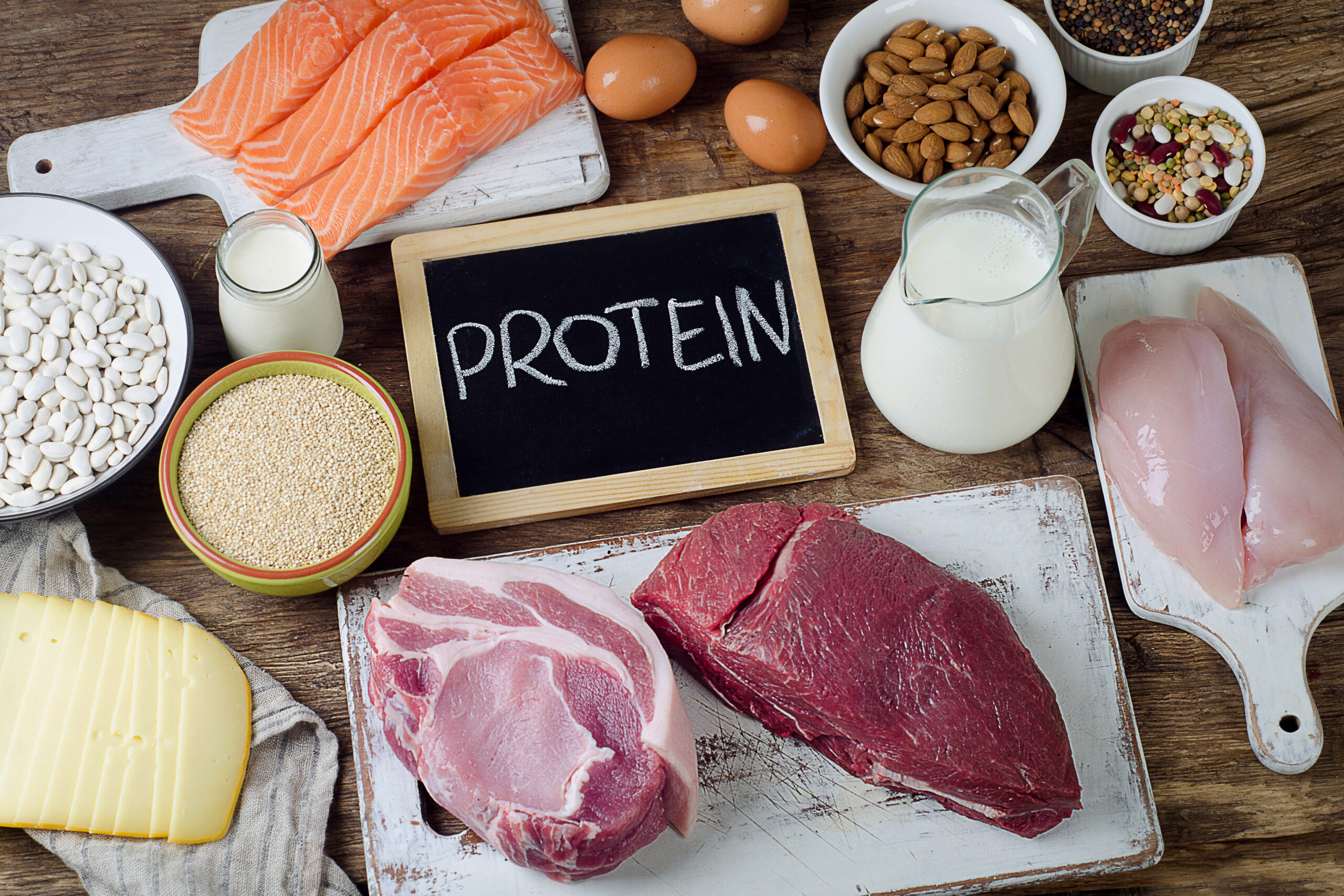Table of Contents

Proteins are the unsung heroes of human health, performing critical functions far beyond muscle building to keep our bodies functioning optimally at every age.
At a Glance
- Proteins serve as essential building blocks for muscle repair, enzyme production, hormone regulation, and immune system support
- Adequate protein intake helps manage hunger and weight by increasing satiety and boosting metabolic rate
- Protein needs increase with age, physical activity, pregnancy, and during recovery from illness
- Quality protein sources include both animal products (meat, dairy, eggs) and plant options (beans, nuts, soy)
- Balance is crucial—too little protein can cause muscle wasting while excessive intake may strain kidneys
The Multifaceted Role of Protein in Your Body
Protein functions extend far beyond building biceps. These complex molecules serve as the primary structural component for nearly every tissue in your body. Made up of amino acids—often called the building blocks of life—proteins are responsible for tissue repair, enzyme production, hormone regulation, and immune system function. Without adequate protein, your body simply cannot perform essential repairs or maintain optimal function of vital systems, from your heart to your brain.
The importance of protein increases with age, as your body becomes less efficient at utilizing protein and maintaining muscle mass. This natural decline, known as sarcopenia, can be significantly slowed with proper protein intake. Research shows that older adults often require more protein than younger individuals to maintain the same level of muscle health and function, making this nutrient especially important for those over 40 concerned about maintaining independence and mobility.
Protein for Weight Management and Appetite Control
If you're watching your weight, protein may be your most valuable ally. Protein has a higher thermic effect than other macronutrients, meaning your body burns more calories digesting protein than it does processing carbohydrates or fats. Additionally, protein is exceptionally effective at reducing hunger hormones while boosting satiety hormones, helping you feel fuller longer after meals and reducing cravings throughout the day.
This appetite-regulating effect makes protein particularly valuable during weight loss efforts. Studies consistently show that people who consume higher-protein diets find it easier to stick to their eating plans and maintain weight loss long-term. For those struggling with late-night snacking or persistent hunger between meals, increasing protein intake at breakfast and lunch can significantly improve control over eating habits throughout the day.
How Much Protein Do You Really Need?
The standard recommended dietary allowance (RDA) for protein is 0.8 grams per kilogram of body weight daily, but this figure is often misunderstood. It represents the minimum needed to prevent deficiency, not the optimal amount for health and function. Many health experts now recognize that higher amounts are beneficial for most adults, particularly those who are physically active or over 40.
For active individuals and athletes, protein requirements increase significantly. The International Society for Sports Nutrition recommends 1.4-2.0 grams per kilogram of body weight daily for those who exercise regularly. This higher intake supports muscle repair, recovery, and adaptation to training. Similarly, adults over 65 may benefit from consuming 1.0-1.2 grams per kilogram to counteract age-related muscle loss, while those recovering from illness or injury often require even more to support healing processes.
Quality Protein Sources for Optimal Health
While quantity matters, protein quality is equally important. Animal-based proteins like meat, fish, eggs, and dairy provide complete proteins containing all essential amino acids in proportions your body can readily use. These sources typically offer the highest biological value, meaning they're efficiently utilized by your body. However, this doesn't mean plant-based eaters can't meet their protein needs effectively with thoughtful food choices.
Plant proteins can be strategically combined to provide all essential amino acids. Beans paired with rice, hummus with whole grain pita, or nut butter on whole grain bread creates complementary amino acid profiles that support complete nutrition. For those following plant-based diets, focusing on protein-rich foods like legumes, tofu, tempeh, seitan, quinoa, and nuts ensures adequate intake. Some research even suggests that consuming a variety of plant proteins may offer unique health benefits beyond meeting basic nutritional requirements.
The timing of protein consumption also matters. Spreading intake throughout the day is more effective than consuming most of your protein at dinner. Aim to include protein with every meal and snack, with particular attention to breakfast, which is often protein-deficient in typical Western diets. This approach supports continuous muscle protein synthesis and maintains steady amino acid availability for your body's ongoing repair and regulatory functions.
AD
Most Recent
AD
